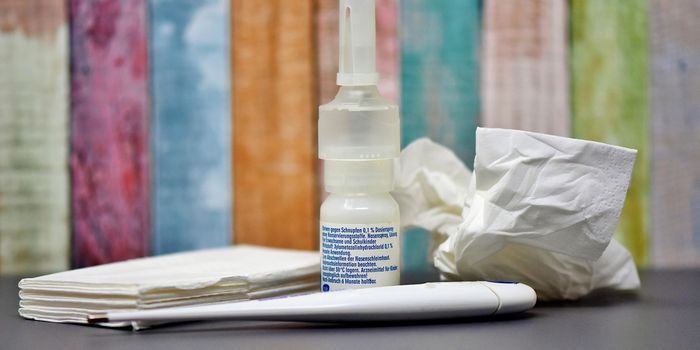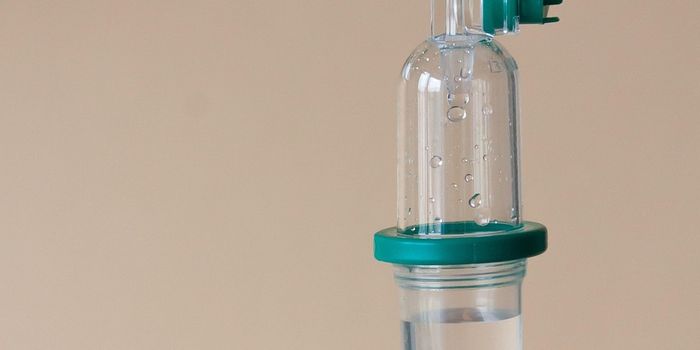COVID-19 Survey Reveals Parental Deception Regarding Their Child's COVID Status
As of this publication date, more than 100 million Americans have contracted COVID-19 at least once, and over 1.1 million have died from the disease. Throughout 2020, the peak of the pandemic, schools and businesses were shuttered, and parents were forced to leave their children home and out of in-person schooling to mitigate the spread of the disease. While vaccinations allow most Americans to return to a normal life, questions and concerns remain as to how well American citizens adhered to health protocols and vaccinations.
Study co-authors, Dr. Angela Fagerlin (left), and graduate student, Holly Shoemaker (right).
These concerns have been addressed in a recent study published in JAMA Network Open, where a team of researchers led by Middlesex Community College examined occurrences of deception regarding COVID-19-related public health measures (PHMs) and their children. Specifically, this study focused on parental noncompliance with quarantine rules with their child/children, deciding instead to send them to school so the parent is able to work. This study explores the reasons parents might take such actions, along with establishing connections regarding each person’s behavioral characteristics.
“The pandemic created tremendous stress for all of us, particularly parents,” said Dr. Andrea Gurmankin Levy, Professor of Social Sciences at Middlesex Community College, and lead author of the study. “Like everyone else, parents worried about getting sick with COVID-19 or about losing their job, but parents also had to manage juggling job responsibilities while their children were home in quarantine. And it’s quite possible that some parents misrepresented their child’s COVID-19 status or didn’t adhere to testing or quarantine rules in an attempt to ease some of this burden.”
This study expands a previous survey of 580 participants by this same research team that found 4 in 10 Americans adults deceived others about their current or previous COVID-19 infection status or did not follow PHMs to mitigate the spread of the disease.
For this new study, a percentage of the original 580 participants who reported having children younger than 18 years of age were asked follow-up questions pertaining to COVID-19 decisions they made for their kids.
The researchers stress the difficulty behind comparing the two studies since parents were asked different questions, specifically regarding their children.
The study’s findings found that approximately 26% of parents provided falsehoods regarding the COVID-19 status of their child in some form or another. These include:
-
More than 50% of parents who deceived others about their children's history of COVID-19 infection or nonadherence to PHMs said they did so to put their family first, to include wanting the freedom to do so, as well.
-
Approximately 35% of parents withheld their child's current COVID-19 status due, in part, to financial necessity and not being able to miss work to take care of them.
-
Almost 43% of parents who withheld that their child was infected with COVID-19 out of fear of their child missing school.
-
Approximately 60% of parents whose kids were unvaccinated stated they were deceptive regarding their child’s COVID-19 vaccination status so their children could take part in vaccination-required activities.
“Based on our study, it appears that many parents were concerned about their children missing school, and as a parent of three school-aged kids, I can understand that,” said Dr. Angela Fagerlin, Chair of the Department of Population Health Sciences at University of Utah Health and a co-author on the study. “Yet, at the same time, they’re potentially exposing other kids to a serious illness. So, it’s tricky because what you might think is best for your child might not be best for other children in the classroom.”
Study co-author, Dr. Angela Fagerlin.
The researchers said parents deceived individuals such as healthcare workers about their kid’s age so they could get vaccinated, while noting these actions by parents were conducted in a manner that would not harm others.
“Parents might have thought that fibbing about their child’s age was a good thing because it would help them stay healthy and safe from the virus and potentially protect others around them,” said Dr. Fagerlin. “But there was a cut-off age for a reason. The vaccine hadn’t been tested in younger aged children and it wasn’t clear that it would be safe or effective for them.”
According to Dr. Alistair Thorpe, who is a former postdoctoral researcher at the University of Utah Health, and a co-author on the study, that the study’s findings should be interpreted carefully since approximately 70% of the participants were women, which demonstrates the study doesn’t cast a full demographic net for the United States.
“Lying about lying is certainly a possibility,” said Dr. Fagerlin. “If anything, 26% is probably the minimum number of parents who misrepresented their children’s COVID-19 status during the pandemic.”
The research team concluded that technologies and policies that respect privacy while not relying on some type of honor system need to be established by health officials.
“We need to do a better job of providing support mechanisms like paid sick leave for family illness so that parents don’t feel like their only option is to engage in misrepresentation or non-adherence to public health guidelines during a future infectious disease outbreak that matches or exceeds the magnitude of COVID-19,” said Dr. Levy.
Can future policies be put in place to help mitigate not only the spread of a disease but also the spread of misinformation?
Sources: Worldometer, JAMA Network Open, EurekAlert!
As always, keep doing science & keep looking up!










